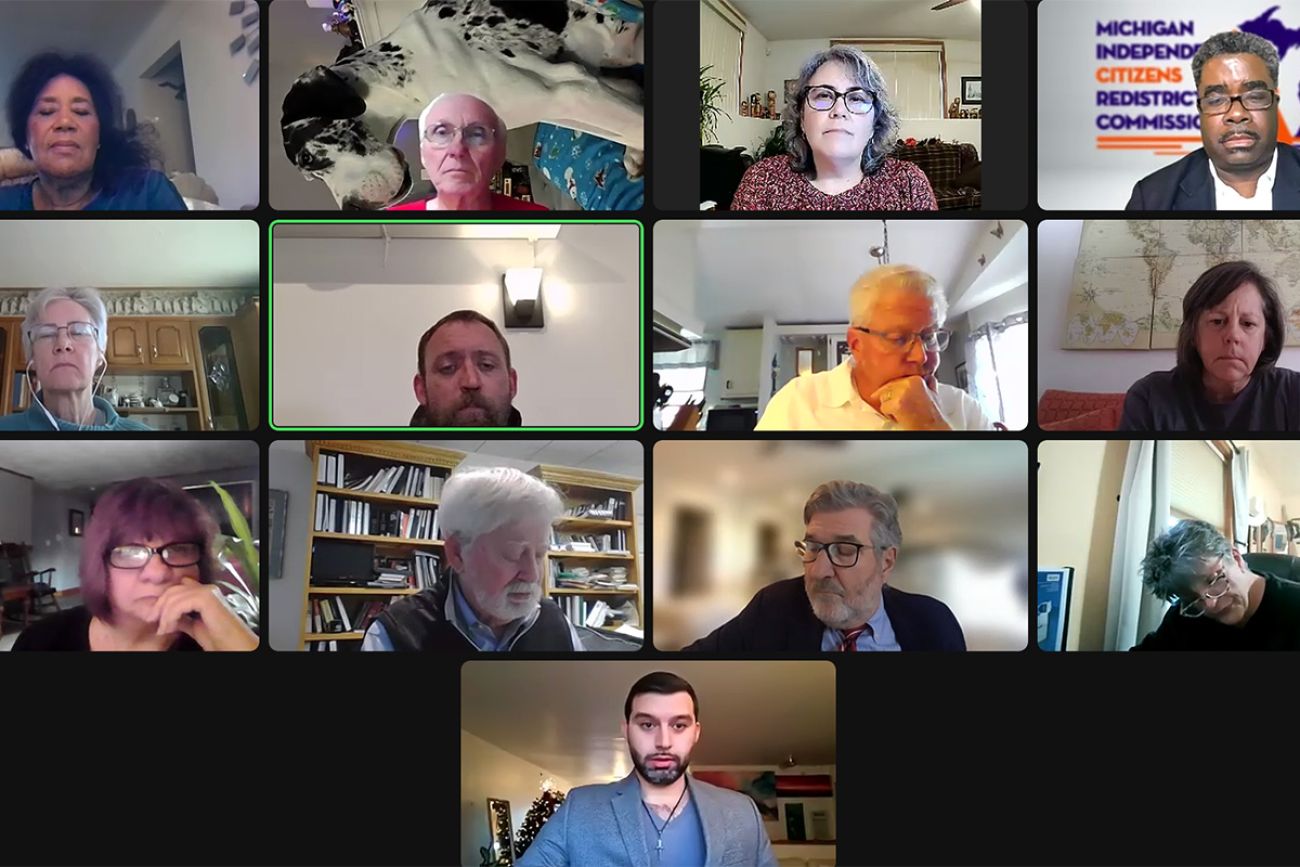Michigan redistricting panel votes to appeal court ruling invalidating Detroit districts

- Redistricting panel moves to appeal federal ruling ordering redraw of Detroit-area state House and Senate districts
- Commission posted same-day notice of meeting, which critics said violates the spirit of transparency
- Next court hearing in the federal case challenging the maps is set for 1:30 p.m. Friday in Kalamazoo
In a surprise meeting Thursday, Michigan’s redistricting commission voted 8-1 to appeal a federal ruling ordering that 13 metro Detroit state House and Senate districts be redrawn.
The vote, held after little debate during a 4:30 p.m. meeting first announced Thursday morning, comes a day before the commission was due back in federal court to discuss next steps for revisiting metro Detroit state legislative maps, including a timeline for redrawing the districts and the possible appointment of a court-appointed special master to assist with the process.
A federal three-judge panel on Dec. 21 found the commission violated Black voters’ rights by improperly relying on racial data to redraw 13 Detroit-area state legislative districts, concluding that the commission “overwhelmingly — indeed inescapably” drew state legislative districts “on the basis of race," and relied on faulty data that denies Black voters proper representation.
Related:
- Three new members selected for Michigan redistricting commission
- Detroiters ask court for Senate elections this year in disputed districts
- Experts: ‘Everything up in the air’ now that Michigan districts must be redrawn
The drawn districts are a “grave disservice to everyone involved with this case, above all the voters themselves,” the court wrote in its opinion.
The commission’s appeal would send the matter directly to the U.S. Supreme Court, which the high court could choose to hear, or not. A motion to appeal was first brought up during the commission’s last meeting in late December, but commissioners ultimately couldn’t vote on the proposal after three members abruptly left the meeting, preventing the commission from holding a quorum.
It’s unclear when the commission will file its appeal and how its actions Thursday stating its intent to appeal will impact the hearing set for Friday.
Thursday’s meeting was the first to feature three new commissioners — Imlay City resident Elaine Andrade, Farmington Hills resident Donna Callaghan and Lincoln Park resident Marcus Muldoon — selected to replace three departing members.
The three were randomly selected Wednesday from a pool of applicants who initially applied to serve on the Michigan Independent Citizen Redistricting Commission between October 2019 and June 2020, and were sworn in at the start of Thursday’s meeting.
Andrade and Callaghan, who affiliate with the Democratic Party, replace outgoing Commissioners Dustin Witjes and MC Rothhorn, both Democrats. Muldoon, 40, who affiliates with the Republican party, was selected to replace Republican Doug Clark.
Two of the vacancies opened up when Witjes, a Democrat, and Clark, a Republican, stepped down after moving out of state. Clark has been living in California for medical reasons but maintains a residence in Michigan, and Witjes moved to Illinois to take a job.
Rothhorn, a Democratic commissioner, submitted his resignation late last year, in part to spend more time on his family and other work, but also because he said the commission is currently suffering from “trust issues.”
The commission initially announced the 4:30 p.m. special meeting at 10:52 a.m. Thursday.
Most public government bodies in Michigan are subject to the state’s Open Meetings Act, which requires at least 18 hours of advance notice. However, the commission’s current rules of procedure, approved by the commission in April 2022, require five hours of advance notice.
Although the constitutional amendment that created the redistricting commission doesn’t explicitly subject the group to the Open Meetings Act, it does mandate the commission “conduct all of its business at open meetings.”
Lisa McGraw, public affairs manager for the Michigan Press Association, said the decision to post same-day notice of the meeting “doesn't seem to comply with the spirit of that expectation.”
“With where they are right now and what they're facing, they should be going above and beyond to allow for public input,” McGraw said. “People in the state put them in place because we wanted more transparency in this process, and a seven-hour meeting notice is not that.”
Edward Woods, the commission’s executive director, said the commission was not hiding anything, noting that “our rules and procedures, which were done in an open and transparent manner, say five hours.”
See what new members are saying about why they donated to Bridge Michigan:
- “In order for this information to be accurate and unbiased it must be underwritten by its readers, not by special interests.” - Larry S.
- “Not many other media sources report on the topics Bridge does.” - Susan B.
- “Your journalism is outstanding and rare these days.” - Mark S.
If you want to ensure the future of nonpartisan, nonprofit Michigan journalism, please become a member today. You, too, will be asked why you donated and maybe we'll feature your quote next time!




